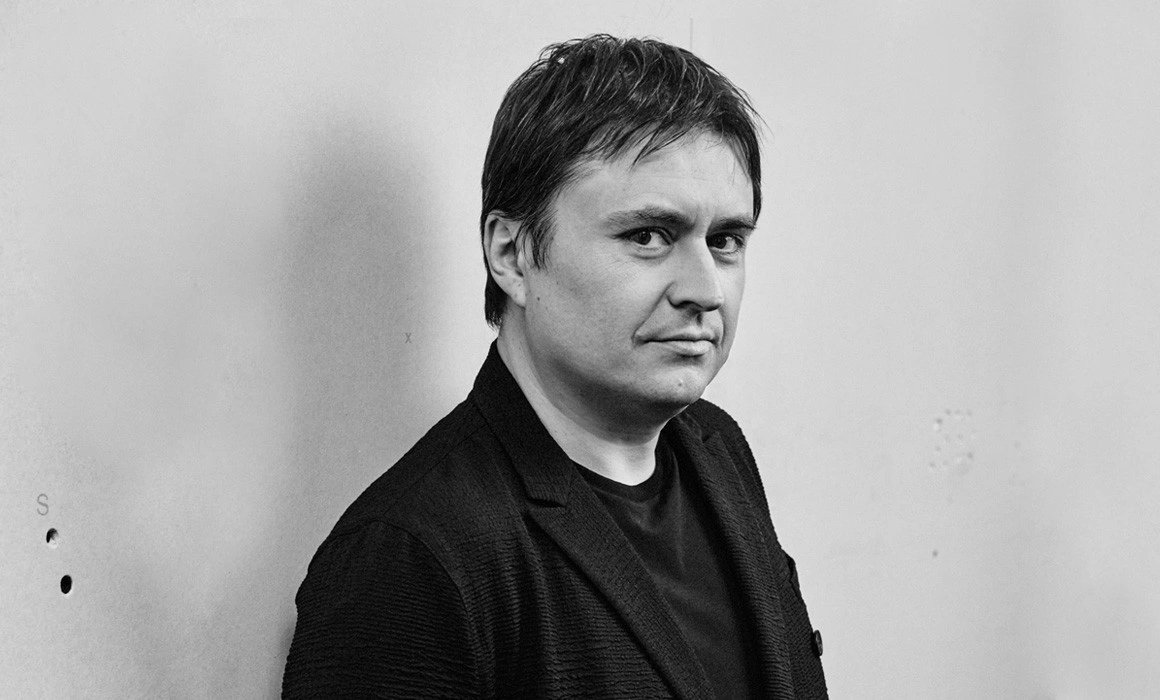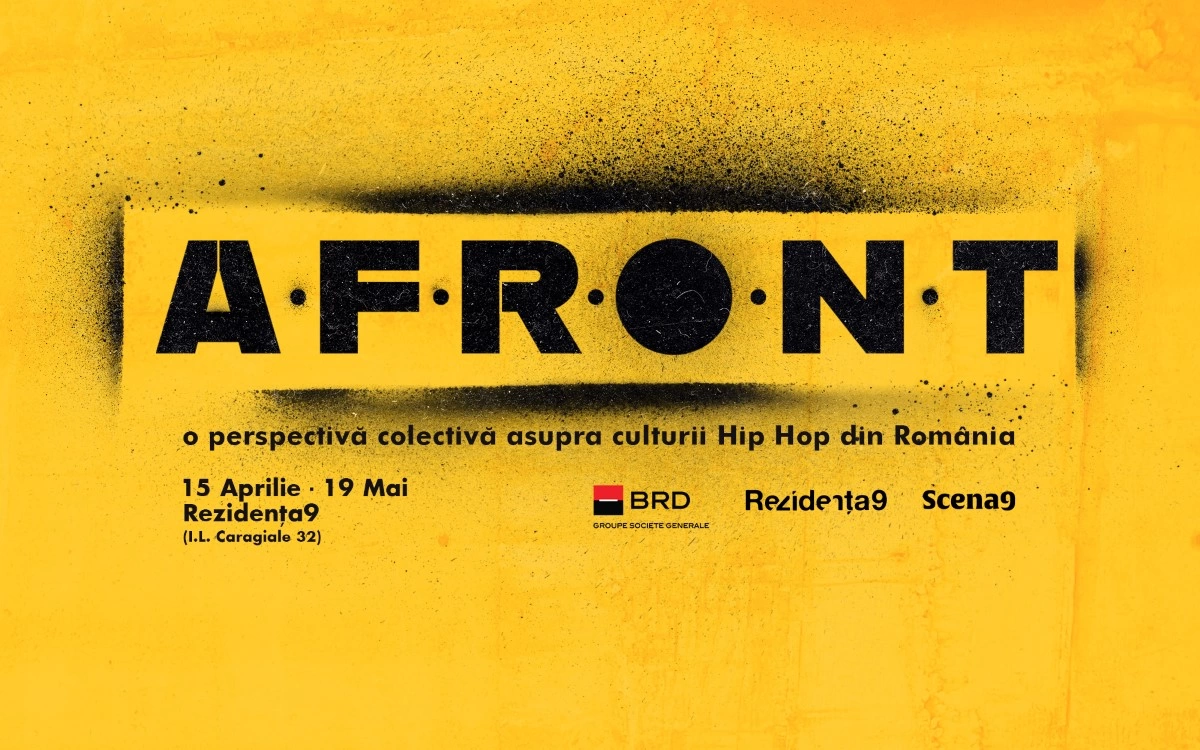Graduation, Cristian Mungiu’s newest feature film, is premiering twofold: Thursday, May 19th, at the Palais des Festivals, in Cannes, and in Bucharest’s Palace Hall. In fact, make that threefold, since it’s the first time a Romanian feature film from Cannes’s official competition is being shown simultaneously in Romania. Nine years in the wake of the Palme d’Or for 4 months, 3 weeks and 2 days, Cristian Mungiu returns to Cannes with a film about the existential crisis of a father and of the society he lives in.
In the commotion prior to his departure for Cannes, there was only time left for an e-mail exchange. Hence this interview.
The characters from Graduation live in a perpetual state of tension. A rock shattering a window, a dog crossing the path, some inmates on the run, another rock shattering a windshield, a rape-aggression. Is this the expression of the state of tension in which we live in Romania?
It’s more rather the expression of the state of tension that the main character feels. Ultimately, many of them are trivial incidents, if you think about it. But one can feel overstrung and assaulted from a whole heap of trifles as well, and to a certain extent I do believe that yes – something from this state of things truly can be found in today’s Romanian society. Think about it – a common example is that you can’t park anywhere in this city without someone lifting your wipers, and if you look at the comments section of any article on the web, there’s a colossal outpour of aggressiveness. The place we live in isn’t exactly gentle, full of kindness and serene – that, despite the 90% Christians who surround us – and this is also the sign of a society which hasn’t yet found its footing.
In film, there’s the choice between staying here and leaving. It’s a choice that you, as a director, have made as well. Did you ever regret not leaving for a country with packed cinemas and consistent financing? Was it worth it to stay?
I don’t know. Because I don’t know how it would have been if I had left. However, whereas fifteen years ago, when I was making Occident, I would promote the idea to stay, to fight for change, nowadays I can hardly look in the eyes of an 18 year-old and tell him: stay, no matter what the cost. Despite many things that changed, there’s a very profound “something” which doesn’t appear to have changed a bit.
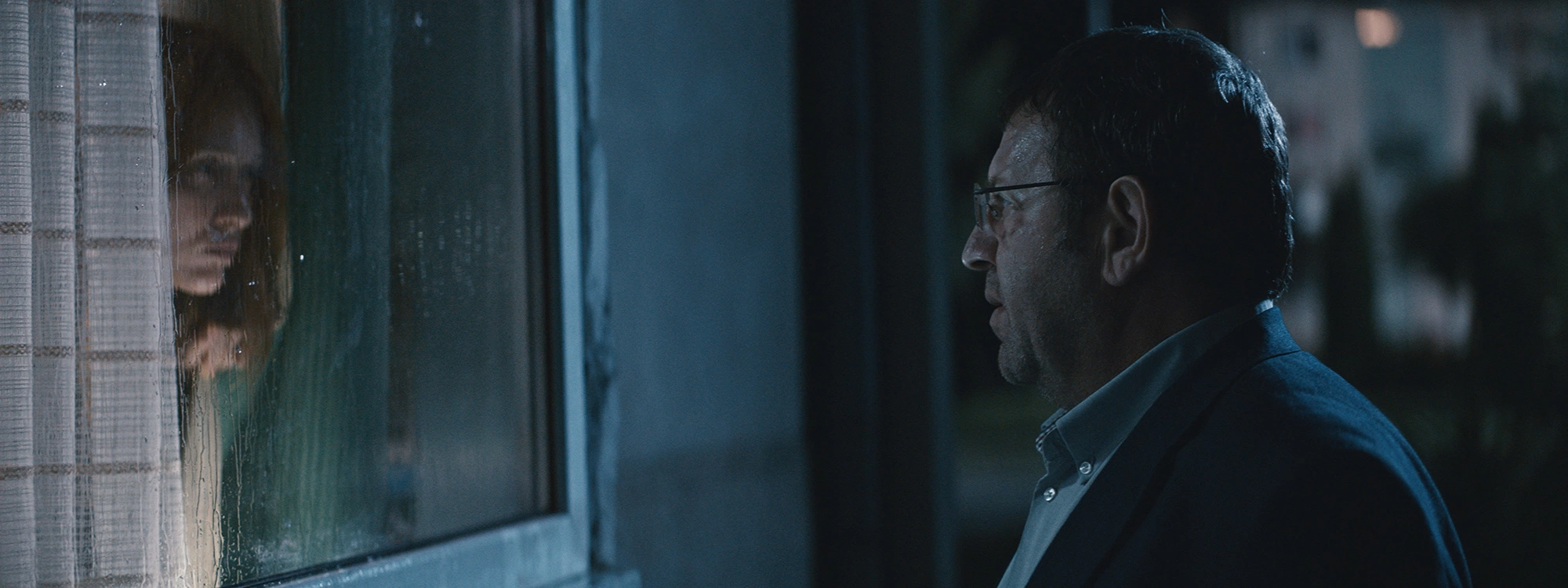
You’re almost of the same age as Romeo, the character portrayed by Adrian Titieni. You belong, in fact, to the same generation, who believed they can move mountains in the early 90’s and who wound up, 25 years later, wondering if they’ve truly managed to do so. What are the trademarks of this generation that you carry around with you?
I think we had a pretty consistent vital energy – also due, probably, to the fact that we were a mammoth generation (the “decreței”), and the struggle for survival was fierce. There were 42 of us in a classroom, my school had parallel classes of pupils that went up to the letter M, and when I applied for college there were 37 applicants per seat. My generation includes those who were students during the Revolution and the University Square, we were the first to vote at the first so-called free elections, we were the first who could claim scholarships abroad and we started seeing how it’s like over there for a bit. We set out with enormous hopes and expectations, because we’d thought we’ll live our entire lives under communism – as were the hopes and dreams, so were the disappointments – because, in our gullibility, we imagined that once the communism fell, universal justice would instantly ensue. But it hasn’t, not by a sight. And then, as it happens, everyone interpreted the facts according to their own personalities and, somehow, made a choice: many had left the country because they didn’t feel like being the next generation to be sacrificed, and out of those who stayed, some fought to change the realities – as much as it depended on them, while others caught wind of how the deal goes and adapted. Romeo from the film is a good archetype: somehow, he got around, he survived, he doesn’t appear to always have been content with the way things are, but, gradually, he realized he can’t be the one to change them and he stretched only as far as his arm could reach, as they say, he understood that one hand washes the other, that one has to leave room for hello and so on, conforming to popular wisdom. But, of course, surviving is one thing, getting around and feeling fulfilled is another.
In an interview, you stated that you’ve had several subjects for a possible film, but they didn’t seem powerful enough to you, so you sought a way to have, in one film, the topics of education, corruption, and family. Weren’t you apprehensive that this accumulation might lead to a dilution of the power you were mentioning?
No. In fact, I deliberately decided to make a film in which there isn’t a singular, very powerful and engrossing story (so as not to make it about something in particular), but, at least for once more, to allow the fabric of our daily life to make up the basis of the film – because there’s more freedom in a story which doesn’t have to assign a lot of time to explain many circumstances. And in the film, as well, one doesn’t identify topics until one thinks about it after viewing it. When seeing it for the first time, I hope you live those happenings as if they were a fluent unfolding of moments which, although they (also) speak about the problems in your life, they can (also) be perceived as a thriller in which you can’t tell where the tension accumulates from and you don’t know what’s going to happen next. After seeing the film, and if you’ve given it some thought – maybe you’ll identify some topics and present yourself with some issues, but I, for one, as the film’s maker, am satisfied even if you were (solely) moved while you were in the theater or if you (solely) found the story interesting.
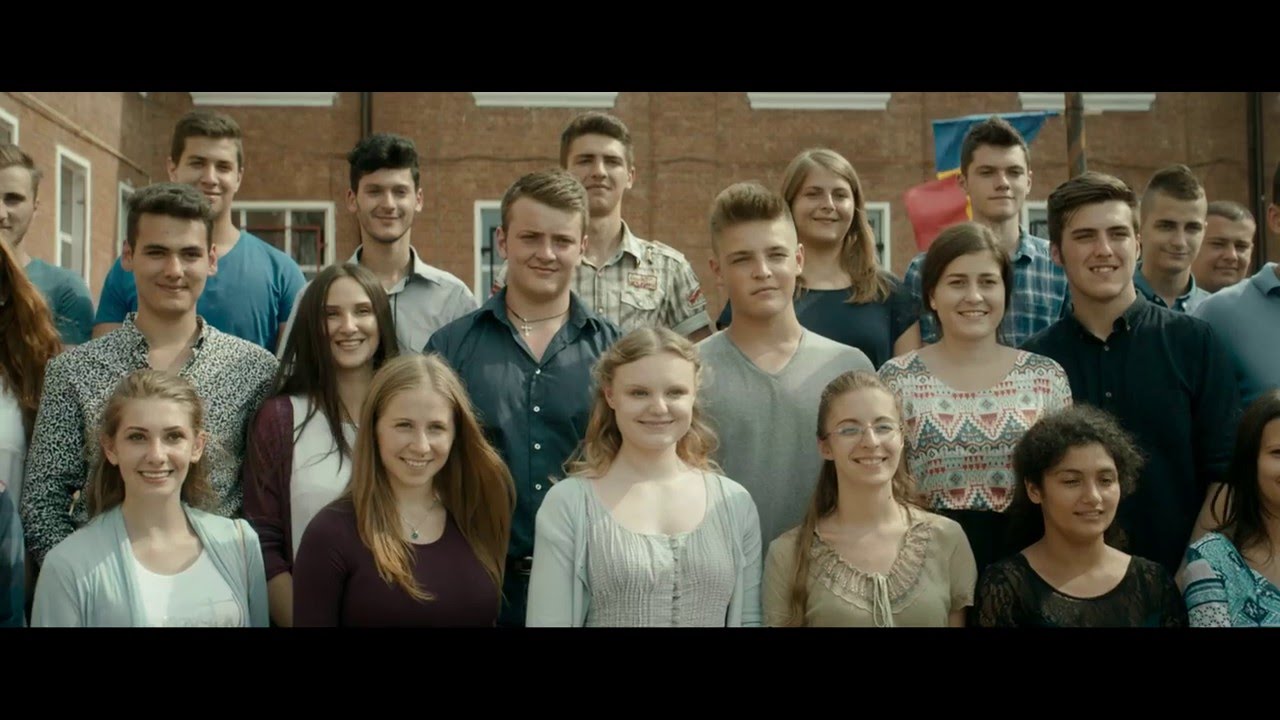
In your films, we find almost always moral dilemmas: what’s the right thing to do, under what terms, etc. For Romeo, “the purpose excuses the means” and it’s alright “to fight with the arms you have over here” so as to be able to leave abroad. His speech is, probably, one many of us can relate with. Do you expect Graduation to kick start questionings/ethical reevaluations for some of the viewers?
That’s hard to believe. Whoever has the inclination towards an ethical evaluation of their lives wouldn’t wait to get this incentive from cinema. But if the film gives you food for thought at least to some degree – addressing you, your “truth”, your lack of strictness in self-scrutiny and seeing yourself for what you are, it’s still a gain. And, of course, if you’ll ponder, for one extra moment, over the values you pass on to your child through your behavior and words, it’s already extraordinary.
You are a father of two. What do you tell them about the world around them? How do you tell them to react to injustice?
Generally speaking, it’s hard to preach things that are valid no matter what the circumstance, and some practical situations, such as catch-22, is very difficult to reasonably manage. For example, on our way to their school, in the morning, we go through an intersection in which, should you stop where the road marking tells you to, a lot of cars will get in front of you both from the left and from the right – but they’re only doing so because the cars in the front also block the intersection, staying there while we have a green light, albeit they couldn’t advance. And you have to react to this situation somehow – on the spot – you can’t make it right by calling a meeting with the drivers and explaining to them that we have to respect each other – because they’ll explain to you how it’s not their fault that they have to survive in a city planned for ten times fewer cars, and so on.
I tend to avoid giving my kids theoretical and generalizing speeches on life and I suspect I’ve told them roughly the same things every parent of the same age and social status tells their kids. The problem is that, if I pull them out of their little world of kids who share their values, I’m not sure about their odds of survival. I took them to a park in the outskirts once and, suddenly, the idea of patiently waiting for your turn seemed suicidal.
As a director, what concerns you more: the ethical discussion, the social critique, the aesthetic pursuits? Or is it something else?
I’m not particularly concerned in pushing the means and analyzing the limits of cinema as an art form – rather, I’m trying to understand and make use of them in order to tell some things which are important to me at that time. Aesthetically, yes, I’m trying to avoid the common spots and remain coherent with the principles and limitations that I like, but I think that in any film/story, what matters in the end is the result, which, to simplify it, is to say that it’s great if you can sweep me off my feet and give me food for thought without using the tropes of commercial filmmaking – however, if you can carefully avoid them, but the result lacks grace, then you were better off using them.
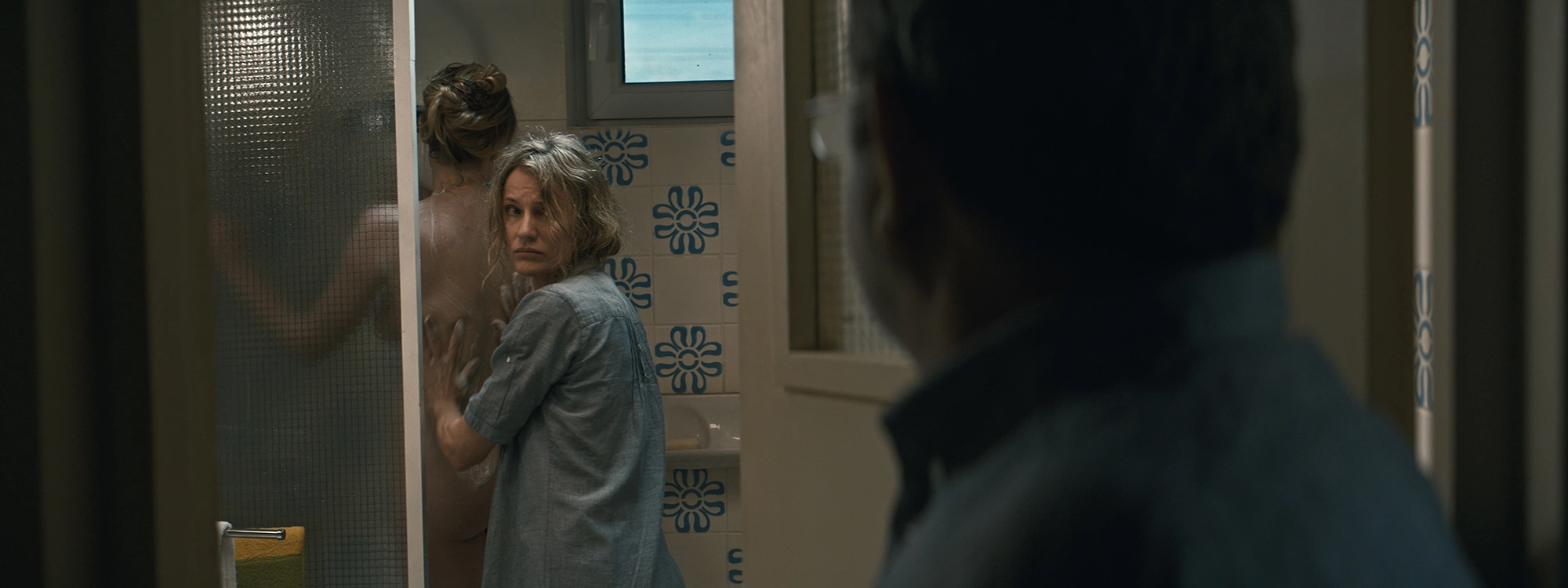
In the film, there are “decent folks” all over the place, people who can help you with something and whom you’re going to have to help at some point. This creates a chain of mutual assistance which bypasses the law. Do you believe we’re a country of decent folks?
Rather, I believe that we’re a country of decent folks who bypass the law. Because I’ve lived under communism and having respect for that law wasn’t an issue, because nowadays we live in a world in which the laws are the way they are and they’re made by those who make them, and that gives us, in our own minds, an excuse, because it’s often more practical and easier, because, sometimes, the law is made in such a way as to determine you to ask for a favor, because it’s possible not to respect the law and not be automatically punished if you don’t. Of course, the idea would be that you modify the things that don’t work, but, as we all know, your life expires before you’ve had the chance to change something. Thus, you take care of it with an intervention. This is the safest way of including yourself in this network in which everyone owes a debt to someone else. And it’s sometimes interesting to ponder over whether this chain will ever break, and how; and whether the education we provide to our children has something to do with perpetuating this model.
Who protects the outsiders who aren’t a part of the mutual assistance system?
I don’t know whether anyone protects them. Those without connections are the ones to whom the law applies – in fact, basically, the laws seem to be made for them.
At last year’s protests for Colectiv, one of the slogans was “Corruption kills”. Is that so or is it an exaggeration? How does day-to-day corruption act upon us?
Corruption doesn’t always have to kill by direct consequence, as was the case for Colectiv or the disinfectants scandal – killing the spirit is enough, killing the joy out of life and killing hope – the devastating main effect of corruption is that those who used to constitute the elite became fed up and fled the country. I’m no anthropologist, sociologist or psychologist, but I can’t help but think that part of the depression in Romanian society is also due to the feeling of disappointment and frustration – following suit to the inequities which corruption generates.
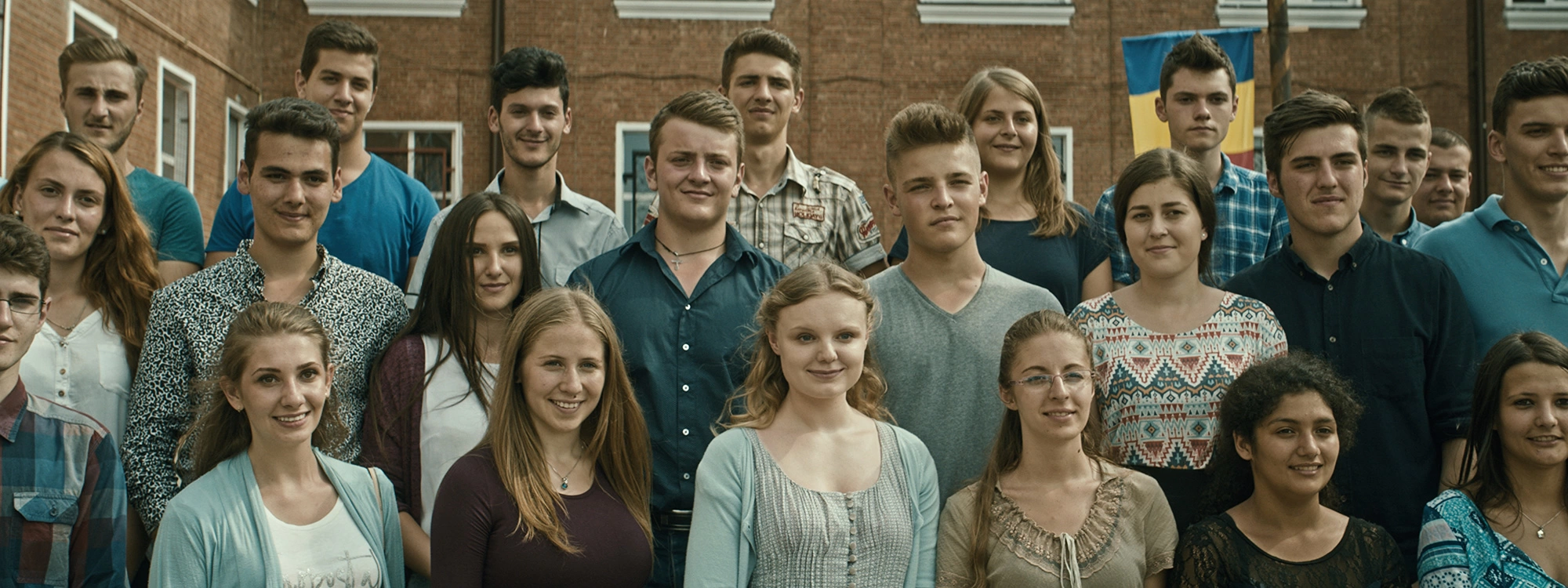
The film’s ending scene – the shot with the group photo, at the graduation ceremony – gives off a feeling that the idea of hope for future generations is mere utopia. What expectation do you have from Romania’s young generation?
If you remember, several years ago there was this case at Bolintineanu high school, when parents and politicians alike shielded the pupils who would cheat heavily on their exams with the permission of their teachers, and the ones who were deemed inadequate were the prosecutors who wanted to investigate. We mustn’t expect the holy ghost of correctitude and morality to rain upon the youngsters without a systematic effort directed at their education in that regard. The new generations will react to the world they find, and it looks as though they (those who’ll choose to stay) will have the impulse of reacting roughly in the same manner they saw us reacting, so let us not be hasty in passing the responsibility of change to them, but rather, let’s try to make right whatever we can, as much as we can, for now.
Graduation can be seen in theaters starting May 20.
Director’s portrait by Dan Beleiu
